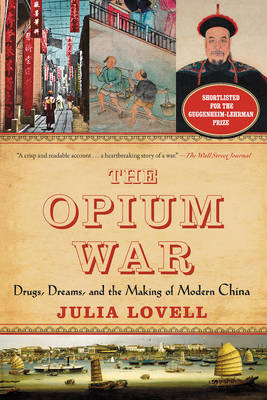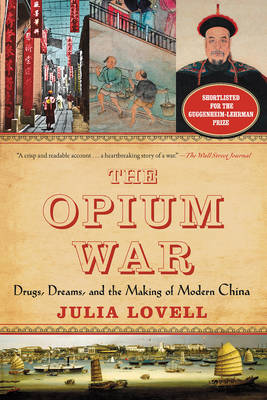
- Retrait gratuit dans votre magasin Club
- 7.000.000 titres dans notre catalogue
- Payer en toute sécurité
- Toujours un magasin près de chez vous
- Retrait gratuit dans votre magasin Club
- 7.000.000 titres dans notre catalogue
- Payer en toute sécurité
- Toujours un magasin près de chez vous
30,45 €
+ 60 points
Récompenses
Description
"A crisp and readable account... A heartbreaking story of a war." (Washington Post) The Opium War is both the story of China's first conflict with the West and an analysis of the country's contemporary self-image. It explores how China's national myths mold its interactions with the outside world, how public memory is spun to serve the present; and how delusion and prejudice have bedeviled its relationship with the modern West. The conflict turned out to be rich in tragicomedy: in bureaucratic fumblings, military missteps, political opportunism and collaboration. Yet over the past 170 years, this strange tale of misunderstanding, incompetence and compromise has become the founding myth of modern Chinese nationalism: the start of China's heroic struggle against a Western conspiracy to destroy the country with opium and gunboat diplomacy. Beginning with the dramas of the war itself, Julia Lovell explores its causes and consequences and, through this larger narrative, interweaves the curious stories of opium's promoters and attackers. Shortlisted for the Guggenheim-Lehrman Military History Prize, The Opium War is by Julia Lovel, professor of Modern Chinese History and Literature at Birkbeck, University of London, where her research has been focused principally on the relationship between culture (specifically, literature, architecture, historiography and sport) and modern Chinese nation-building.
Spécifications
Parties prenantes
- Auteur(s) :
- Editeur:
Contenu
- Nombre de pages :
- 512
- Langue:
- Anglais
Caractéristiques
- EAN:
- 9781468311730
- Date de parution :
- 10-11-15
- Format:
- Livre broché
- Format numérique:
- Trade paperback (VS)
- Dimensions :
- 152 mm x 228 mm
- Poids :
- 675 g









